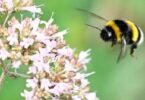F.P. Report
ISLAMABAD: (Online) Numerous studies have revealed the positive effects that nature and the surrounding environment can have on mental and physical well-being. And now, new research published on August 5 from the University of Tokyo suggests the benefits of spending time in nature extend much further than previously believed.
Researchers conducted a systematic review of 301 academic articles, spanning 62 countries, on ‘cultural ecosystem services’ (CESs) — also known as the non-material or “intangible contributions” to well-being that nature provides.
They identified 227 unique “pathways” that “link a single CES to a single constituent of human well-being, [which is] many more than we initially thought,” explained study co-author Alexandros Gasparatos, PhD, associate professor of sustainability science at the Institute for Future Initiatives (IFI) at the University of Tokyo.
Nature and well-being: What’s the link?
Gasparatos said that connecting with nature provides opportunities for recreation and leisure, spiritual fulfillment, personal development, social relations, and aesthetic experiences.
Previous studies have shown that engaging in such opportunities can provide benefits such as enhanced physical and mental healthTrusted Source, social cohesion, and a sense of place.
Alongside the 227 pathways identified by University of Tokyo researchers, Gasparatos said they also determined 16 “individual mechanisms.”
Gasparatos described these mechanisms as the “overarching types of connection through which more specific pathways are created.”
According to Gasparatos, previous studies had already highlighted some of the mechanisms, but the new research has identified 10 more. These include:
• Cohesive: The development of meaningful human relationships through interactions with nature.
• Formative: When elements such as mood, attitude, behaviors, and values change instantly or over a short duration, following interaction with nature.
• Satisfactive: Feeling that your expectations and needs are satisfied through interactions with nature.
• Transcendent: Obtaining benefits related to religious or spiritual values after interacting with nature.
“Although the findings are not necessarily surprising — at least to experts in our field — our study provides the first comprehensive effort to systematize them,” Gasparatos said. “In this sense, it provides a cohesive information base and conceptual framework of how these linkages occur.”
When it comes to connecting with nature and the environment, these mechanisms can be stimulated in various ways. For instance, a gentle stroll in the forest, helping out with a beach clean-up, exploring a new city, or foraging for berries are all activities that stimulate a sense of connection.
The researchers also noted that a crossover of mechanisms may occur, further enhancing their impact. For instance, caring for nature with a nature-based recreation activity, such as gardening, would encompass both cognitive and evolutive mechanisms.
But stimulation doesn’t always have to come from the outside world.
“For centuries, it was known to builders of temples worldwide that their high ceilings nudge us toward abstract thought and feelings of awe,” explained Michal Matlon, a place and architectural psychologist at the LivingCore.
Outcomes on well-being
Researchers like Gasparatos say that it’s been challenging to gauge the true effects of nature on well-being.
“Although we have a good level of understanding that these linkages between non-material benefits and human well-being do exist, we are still not very sure as to the actual ways that these connections happen in reality, or their actual effect on different aspects of human well-being,” Gasparatos said.
“This is largely because many of the existing studies have used different methodologies [and] metrics, or focused on individual benefits, ecosystems, and geographical contexts.”
Still, Gasparatos said that he and his research team were able to better understand how the linkages occur in reality as well as their relative effects on different aspects of well-being.
The biggest benefits were seen in physical and mental health, with recreation, tourism, and aesthetic value — all notable CES contributors.
The significant role of CESs in driving feelings of connectedness and belonging followed second, as well as in establishing a sense of learning and capability.
According to Gasparatos, a variety of factors can influence a pathway’s impact on well-being.
“These include demographic background (i.e., gender, age, education, income), characteristics of landscape (i.e., greenery, size and shape of landscape elements), distance to the site, cultural and historical features, and personal preferences, and so on,” Gasparatos explained.
Not all of nature’s effects were positive
Despite finding myriad benefits in their analysis, the researchers also saw not-so-favorable outcomes between CESs and human well-being — discovering three negative mechanisms and some less beneficial pathways.
“Although we knew that such links might exist, there are few studies that try to systematize this information,” said Gasparatos.
Two primary factors were recognized as potential negative contributors to well-being:
• The degradation or loss of an existing CES, such as an unmaintained park or building development.
• “Disservices,” such as constant loud tweeting of birds outside your window, which some might find annoying.
They also identified the existence of “trade-offs,” whereby some individuals benefit from a particular CES, but others do not.
“For example, in an Indigenous community, promotion of tourism activities can create recreation opportunities for visitors — with multiple benefits for well-being, such as physical health, learning, etc. — and economic benefits to some locals (such as economic well-being),” Gasparatos said.
However, at the same time, he adds, the challenges of dealing with an influx of tourists “can compromise different well-being components for other locals (i.e., spirituality).”
Still, it’s important to remember that the study findings were largely positive.
“Overall, there is a higher prevalence in the literature of positive and high-magnitude CES impacts on human well-being, while there is a comparatively lower prevalence of lower magnitude or negative impacts,” the study authors wrote.
How nature benefits the body and mind
We know that being outdoors in various environments can provide a host of benefits. But exactly how does nature impact our physiological and mental states?
“Nature’s benefits are facilitated not only by visual stimuli, but also by its sounds, smells, and all the other senses,” Matlon said.
According to environmental psychologist Lee Chambers, “studies have shown we can have a physiological response to being in natural environments, reducing our heart rate, blood pressure, and muscle tension.”
“There can also be a level of psychological restoration, with the lowering of cortisol, improved concentration, and feeling a deeper sense of connection,” Chambers added.
As a result of these effects, participants in previous research studies have reported benefits including:
• lower stress levelsTrusted Source
• reduced anxiety and depression
• improved self-esteem
• a boost in confidence






